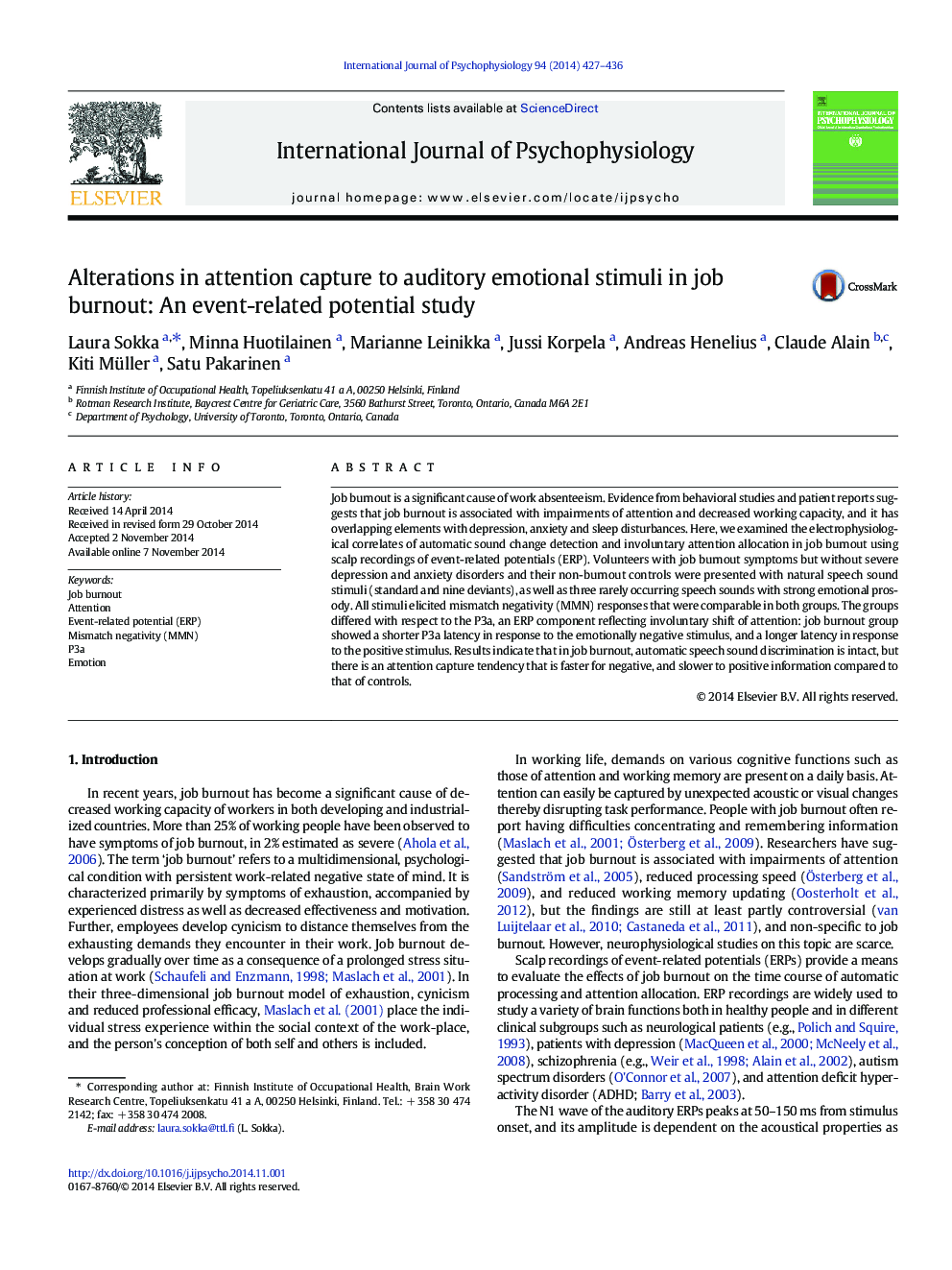| کد مقاله | کد نشریه | سال انتشار | مقاله انگلیسی | نسخه تمام متن |
|---|---|---|---|---|
| 930180 | 1474412 | 2014 | 10 صفحه PDF | دانلود رایگان |
• We studied speech discrimination and involuntary attention in burnout using ERP.
• Automatic sound change detection is intact in job burnout.
• Attention capture to emotional information is altered in job burnout.
Job burnout is a significant cause of work absenteeism. Evidence from behavioral studies and patient reports suggests that job burnout is associated with impairments of attention and decreased working capacity, and it has overlapping elements with depression, anxiety and sleep disturbances. Here, we examined the electrophysiological correlates of automatic sound change detection and involuntary attention allocation in job burnout using scalp recordings of event-related potentials (ERP). Volunteers with job burnout symptoms but without severe depression and anxiety disorders and their non-burnout controls were presented with natural speech sound stimuli (standard and nine deviants), as well as three rarely occurring speech sounds with strong emotional prosody. All stimuli elicited mismatch negativity (MMN) responses that were comparable in both groups. The groups differed with respect to the P3a, an ERP component reflecting involuntary shift of attention: job burnout group showed a shorter P3a latency in response to the emotionally negative stimulus, and a longer latency in response to the positive stimulus. Results indicate that in job burnout, automatic speech sound discrimination is intact, but there is an attention capture tendency that is faster for negative, and slower to positive information compared to that of controls.
Journal: International Journal of Psychophysiology - Volume 94, Issue 3, December 2014, Pages 427–436
